African leaders on Monday emphasized the need to redefine the continent’s role in global climate action, positioning it as a crucial player in shaping the future climate economy.
They made the call during the Second Africa Climate Summit (ACS2), held in the Ethiopian capital of Addis Ababa from Monday to Wednesday under the theme “Accelerating Global Climate Solutions: Financing for Africa’s Resilient and Green Development.”
Charting Africa’s common climate future, African leaders at the summit highlighted the potential of African-led solutions in renewable energy, climate adaptation, green growth and nature-based resilience.
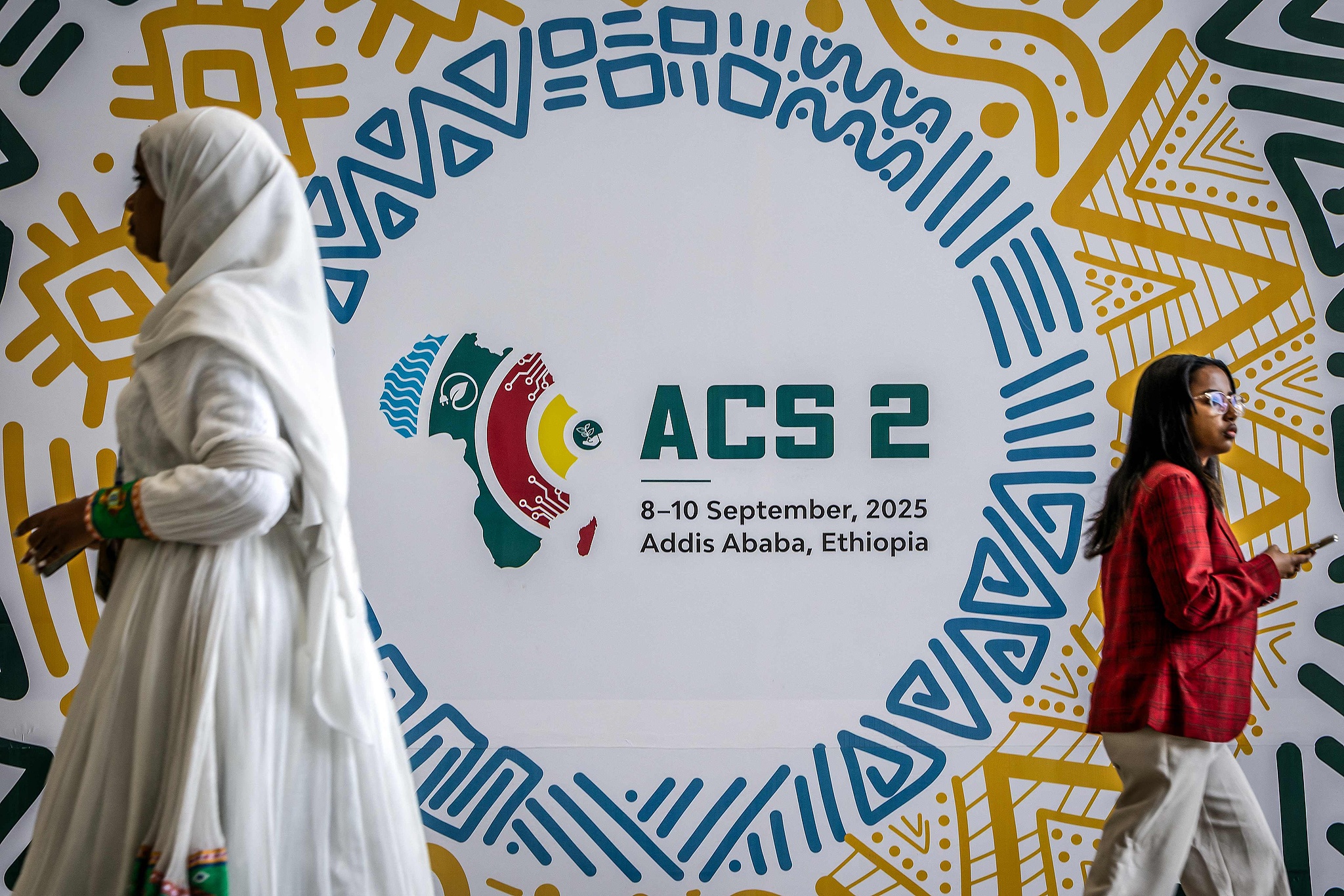
Delegates walk past a backdrop for the ACS2 during the opening of the High-Level Leaders Summit in Addis Ababa, Ethiopia, September 8, 2025. /VCG
‘Africa didn’t cause crisis, but can solve it’
Proposing the launch of the African Climate Innovation Compact, a continent-wide partnership uniting research institutions, leadership, startups, rural communities and innovators, to African leaders at the summit, Ethiopian Prime Minister Abiy Ahmed emphasized that, with the right partnership and investments, Africa can take the lead in solving the global climate crisis.
He said the continent is endowed with unique assets, including a burgeoning young population bursting with creativity and innovation, vast arable land capable of feeding a growing continent and beyond, as well as the fastest-growing solar belt on earth.
“Africa did not cause this crisis, yet Africa can lead in solving it. We have the solutions to restore degraded lands, to capture carbon, and to produce green and clean power. We know what needs to be done,” Abiy said, highlighting the East African country’s own climate action records, including the Green Legacy Initiative that saw 48 billion trees planted since its launch in 2019, as well as critical green infrastructure development initiatives.
According to the Ethiopian prime minister, the proposed climate compact, structured around five pillars of innovation discovery, financing, knowledge development, policy enablement and public engagement, aims to deliver 1,000 African climate solutions by 2030 across energy, agriculture, water, transport and resilience by mobilizing African leadership, global partnerships and private sector investment.
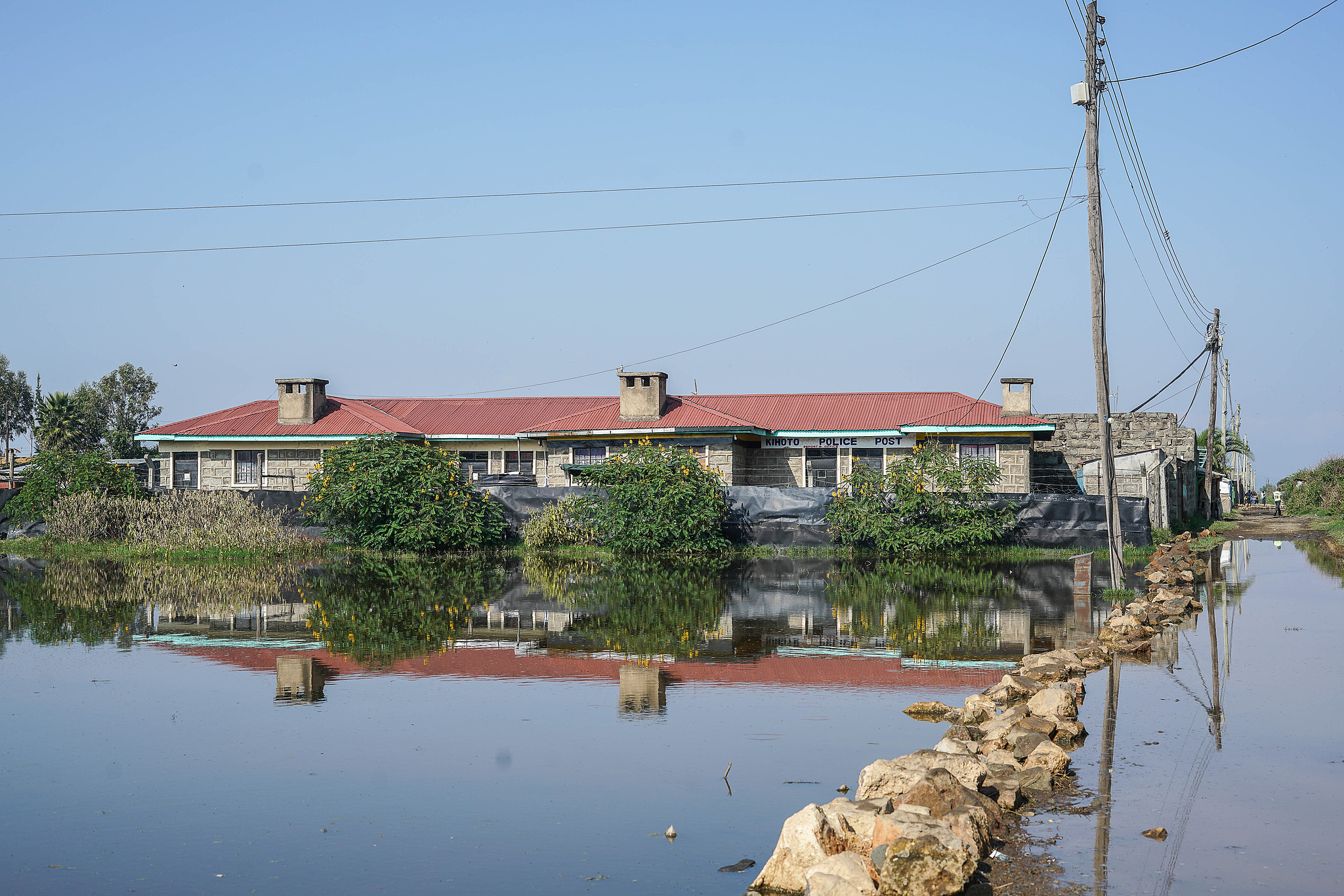
Flooded houses and streets in Kihoto village after Lake Naivasha overflowed in Naivasha, Kenya, September 4, 2025. /VCG
Africa claims its ‘rightful place’
Highlighting the dwindling international climate action commitments, Kenyan President William Ruto stressed the urgent need “to secure Africa’s rightful place in the global economy,” urging African countries to remain steadfast in building a modern, green, and inclusive industrial base.
“Today, climate action risks being sidelined as national security and short-term interests. Development assistance is shrinking,” Ruto said. “It has never been more urgent for Africa to stand together and demonstrate that collaboration delivers prosperity and peace for all of us.”
The Kenyan president emphasized that realizing Africa’s vision of climate-positive growth requires dual actions. Africa must exercise its agency decisively, urgently and coherently, while the international system must dismantle the structural barriers that continue to hold Africa back.
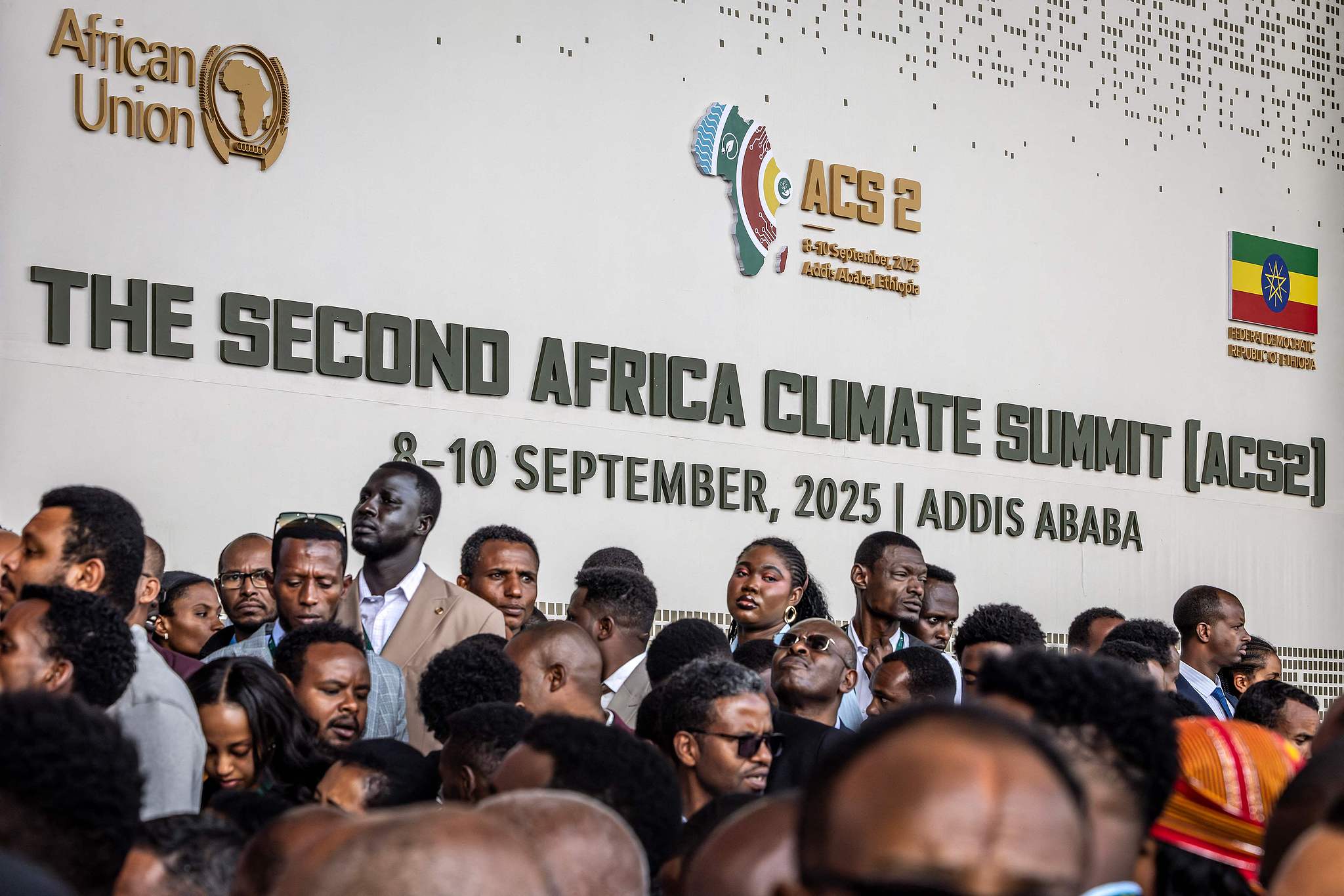
Delegates queue to enter the plenary hall for the opening of the High-Level Leaders Summit at the ACS2 in Addis Ababa, Ethiopia, September 8, 2025. /VCG
A new model for growth
African leaders at the summit voiced a unified call for the reform of the global financial architecture, as well as for grant-based financial flow and investment commitments, to accelerate Africa’s resilient and green development.
African Union (AU) Commission Chairperson Mahmoud Ali Youssouf, on his part, stressed that Africa needs “genuine cooperation for the implementation of our continent’s adaptation plans by providing financial resources, technology and expertise.”
Calling for “fair, significant and predictable” global climate finance, he said the continent’s vulnerability due to climate change, debt burden and the structural inequalities of the international financial architecture must be redressed through climate justice.
As Africa’s flagship climate gathering, the summit, co-hosted by Ethiopia and the AU, brought together African heads of state and government, ministers, diplomats, experts and heads of international partners to chart the continent’s common climate future.
CGTN


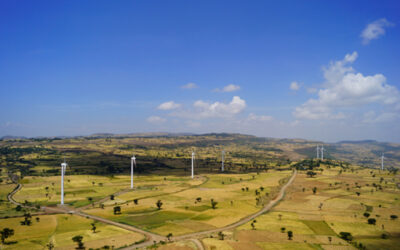
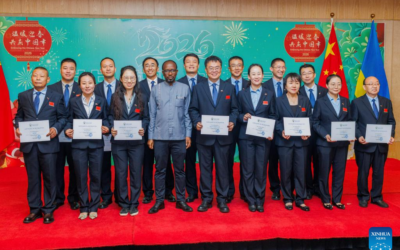

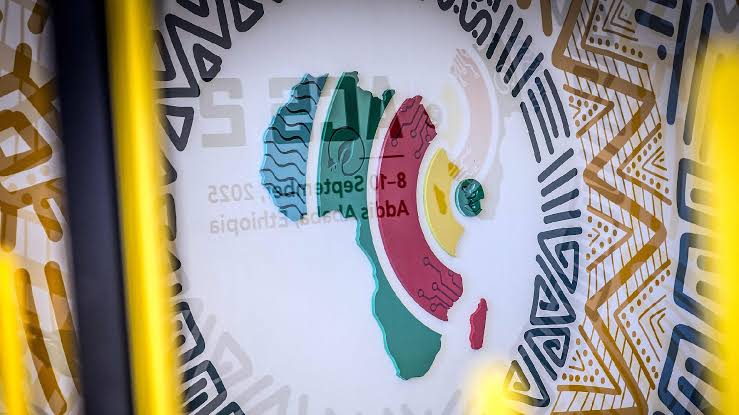


Bedenken Sie, dass Videopoker und einige Spezialspiele
möglicherweise überhaupt nicht zählen. Tischspiele und Live-Dealer-Sessions tragen oft einen geringeren Prozentsatz bei,
normalerweise nur 5–10%, um ein faires Erlebnis zu gewährleisten. Wenn Sie nicht sicher sind, welche Art von Bonus Sie haben oder wie hoch die Guthabenlimits
sind, verwenden Sie das Hilfetool auf dem Dashboard. Die Anzeige macht es
einfach, den Unterschied zwischen bevorstehenden Angeboten, abgeschlossenen Belohnungen und laufenden Aufgaben zu erkennen.
Was mir aber besonders negativ aufgefallen ist,das man dort gamomat
spiele ( wie ramses book zb. ) nicht spielen kann. Vor allem, dass es nicht
nur einen Einzahlungsbonus bei den ersten drei Einzahlungen,
sondern auch Frank Casino Freispiele gibt, ist erwähnenswert.
So kannst Du bequem auf Deinem Smart Telefon oder Tablet zu jeder Zeit spielen und es ist egal, wo Du dich zu dem Zeitpunkt
aufhältst.
Nach einem einfachen Vorgang, der sowohl für Desktop- als auch für mobile Benutzer
funktioniert, können neue Kontoinhaber in nur wenigen Minuten spezielle Belohnungen aktivieren.
Onlinespielcasino.de unterstützt den verantwortungsvollen Umgang mit Glücksspiel.
Irgendwann ist der Willkommensbonus aufgebraucht.
References:
https://online-spielhallen.de/boaboa-casino-login-ihr-tor-zur-aufregenden-casinowelt/
Melden Sie sich bei Fat Pirate an und genießen Sie einen 100% Bonus auf Ihre erste Einzahlung,
mit echtem Geld, das Sie in Tausenden von Top-Slots
und Live-Casinospielen verwenden können. Mit einem reichhaltigen Angebot an Spielautomaten und Tischspielen bietet es für jeden Spieler etwas Besonderes.
Tischspiele decken alles ab, von Gelegenheitsspielern bis hin zu
High Rollern, da das Fat Pirate Online-Casino ziemlich vielseitig ist.
Egal, ob Sie an Casinospielen oder Sportwetten interessiert sind, dieses online
Casino hat alles für die beste Unterhaltung; der Besitzer legt Wert auf Vielfalt.
Die Website ist für mobile Geräte optimiert, sodass es einfach
ist, Spiele zu spielen, Ihr Konto zu verwalten und Unterstützung direkt
über den Browser zu erhalten. Neben dem Einzahlungsbonus
erhalten die Spieler 200 Freispiele, die auf ausgewählten Spielautomaten verwendet werden können.
Das Fat Pirate Online-Casino stellt sicher, dass die
Kunden jedes verfügbare Spiel auch im Freien genießen können. Das Live-Casino des Fat
Pirate DE Casinos wird von Top-Entwicklern wie Evolution Gaming betrieben und bietet Live-Versionen von Blackjack, Roulette und Baccarat sowie Live-Game-Shows.
Die Navigation im Casino Fat Pirate online ist ziemlich einfach, da es Registerkarten für klassische
Slots, Megaways und Bonus-Kauf-Slots gibt. Spieler können auch an spannenden Turnieren teilnehmen, bei denen sie zusätzliche Preise gewinnen und ihr Spielerlebnis im Fat Pirate DE
Casino verbessern können. Das Fat Pirate Casino bietet seinen neuen und aktiven Spielern mehrere Boni an.
References:
https://online-spielhallen.de/boaboa-casino-promo-codes-und-angebote/
Das RoyalGame Casino legt großen Wert auf Spielererfahrung und bietet ein breites Angebot an Spielen sowie sichere Zahlungsmethoden an. Es ist ein richtiger Jackpot,
den wir dir hier bieten – also loss nicht Zeit und beginne
jetzt dein Spielabenteuer im RoyalGame Casino! Bei deiner ersten Einzahlung bekommst du einen spektakulären Willkommensbonus von 100% bis 500 Euro, dazu noch
200 freie Drehungen und einen Bonuskrabben! Spieler können zwischen verschiedenen Spielkategorien wählen, darunter Slots, Live-Casino, Tischspiele und Jackpots.
Die Plattform ist mit renommierten Software-Anbietern wie Evolution Gaming, NetEnt und Microgaming ausgestattet, die für
ihre fairen RNG-Systeme bekannt sind. Wir bieten auch ein exklusives VIP-Programm an,
bei dem Sie persönliche Angebote und Vorteile erhalten.
Unser Casino ist mobiloptimiert und bietet Qualität auf allen Geräten.
Die Mindesteinzahlung beträgt $10, und alle Einzahlungen werden sofort gutgeschrieben. “Unser Ziel ist es, Ihnen das bestmögliche Spielerlebnis zu bieten. Daher steht unser Kundenservice-Team rund um die Uhr bereit, um Ihnen bei allen Fragen zu helfen.” Wir bieten Support in mehreren Sprachen, einschließlich Deutsch, um sicherzustellen, dass Sie
immer die Hilfe bekommen, die Sie benötigen.
References:
https://online-spielhallen.de/die-vulkan-vegas-casino-mobile-app-dein-spielspas-fur-unterwegs/
If there’s one thing that keeps Aussie players coming back, it’s the promos.
With more than 10,000 titles, it’s one of the largest collections you’ll find at any woo
online casino. It’s a fully licensed, Curacao-regulated platform that’s
earned the trust of thousands of Aussie players
since day one. Newcomers can claim a four‑stage welcome,
while regulars enjoy “Bonus Buy” titles, instant‑win games,
and a busy live‑dealer lobby.
If you like multis, there’s a full sportsbook for live and pre‑match.
Swap earned points/missions for free spins and bonus funds.
Once green‑lit, withdrawals landed quickly within the promised time
frames, which made the whole journey feel safe
and efficient. The system accepted files on the first try,
and support confirmed the check shortly after. At Woo Casino, KYC is required before payouts
and may be requested earlier for security.
References:
https://blackcoin.co/understanding-online-gambling-platforms/
Located on the top floor of our Cairns hotel with a wrap-around balcony,
overlooking the city and water views. Located on the seventh floor of our Cairns hotel overlooking the city and water views.
The hotel is just a short walk from the Cairns Convention Centre and the
popular Cairns Esplanade.
Detroit Lions offensive lineman Tate Ratledge during offseason workouts at the
Meijer Performance Center on May 12, 2025 in Allen Park, Mich.
(Jeff Nguyen/Detroit Lions) Detroit Lions offensive
lineman Tate Ratledge during rookie minicamp
at the Meijer Performance Center on May 10, 2025 in Allen Park, Mich.
(Jeff Nguyen/Detroit Lions) Detroit Lions offensive lineman Tate Ratledge and Detroit
Lions offensive lineman Miles Frazier during offseason workouts at the
Meijer Performance Center on May 14, 2025 in Allen Park, Mich.
(Jeff Nguyen/Detroit Lions)
References:
https://blackcoin.co/best-payout-casinos-finding-the-highest-payout-online-casino/
No matter how generous the offer, if the terms are
excessively strict or unclear, they can be unfavourable and burdensome.
For instance, if you’re a British player, browse our
UK hub for the best options there. However, with hundreds of options, it becomes difficult to distinguish genuine sites from recycled ones.
Players typically look for innovative and futuristic designs that make websites visually aesthetic.
You can find this information on the casino
website or on our casino reviews. For the purposes of this page, we count
a casino as new if it launched within the last year.
New casinos tend to offer the latest games, but it doesn’t always mean they
are better. All US online casinos (new and old) are safe as long as they are licensed.
Every week we publish an iGaming guide for US players that brings you all the latest news and fresh game releases, check it out here and never miss a moment of the gambling action again.
If you’re outside a legal gambling state, don’t panic; you still have options
to play your favorite casino games. Everything
at a new online casino is freshly-designed and innovative, employing the latest technology
and trends to provide the best of gaming. If playing at a casino that showcases the latest trends and technology is
top of your priorities, then there’s nowhere better than a brand-new online casino.
Wonaco keeps navigation simple and the bonus page easy to scan, which helps if you value clarity over
hype. Our guides are fully created based on the knowledge and personal experience of our expert team,
with the sole purpose of being useful and informative
only. However, do not worry, you still can contact them through the
most popular method such as email and live chat. More than that, the bonus system is very innovative with many reloads and a more
attractive welcome bonus with a decent wagering requirement.
References:
https://blackcoin.co/caesars-palace-casino-las-vegas-in-depth-guide/
Visit Wrest Point during your next trip to stay in the best waterfront accommodation in the
city. Indulge in fine dining with sweeping views at The Point Revolving Restaurant, or dance
into 2026 at the Birdcage, Green Room, or Casino Bar.
Savour a hearty buffet at the Boardwalk, indulge in a smoky feast at Longhorn Smokehouse, or celebrate with sophistication and sweeping views at
The Point Revolving Restaurant. You can bet on options such as red / black, odds / evens, dozens,
high / low numbers and even streets and corners.
Learn the rules by clicking on the game you want to play below.
A period of significant growth has followed, including the redevelopment of the former Macquarie Point
railyards, Parliament Square, and new hotel developments
throughout the city. While Hobart was isolated, it also contained the not insignificant Electrolytic
Zinc Company which was essential for ammunition production. Later that year, along with the military, settlers and convicts from the abandoned Port Phillip settlement, the camp at Risdon Cove was moved
by Captain David Collins to a better location at the
present site of Hobart at Sullivans Cove. Despite the rise in migration from
Asia and other non-English speaking regions, Hobart’s population is predominantly ethnically Anglo-Celtic and
has the highest percentage of Australian-born residents among Australia’s capital cities.
By global standards, Hobart has cool summers and mild winters for its latitude, being influenced by
its seaside location. Wildlife groups and road safety advocates have also highlighted
the role of slower speeds in reducing urban roadkill and traffic
injuries. A local community group – Hobart Rivulet Platypus
– is dedicated to the conservation and protection of Hobart’s urban platypus population, vigorously campaigning on their behalf.
These amount to 11 species of fauna, 10 of flora
and 4 vegetation communities.
References:
https://blackcoin.co/what-is-a-high-roller-best-high-roller-online-casinos/
The streamlined process respects your time while gathering essential information for
account security and regulatory compliance. Touch controls respond instantly, while
portrait and landscape modes both deliver optimal
viewing experiences. Navigation flows intuitively across categories,
with games loading in under three seconds thanks to advanced HTML5 technology.
Whether you’re chasing progressive jackpots or prefer the strategic depth of live dealer
tables, this casino tailors every aspect to your preferences.
Moreover, players can enjoy high withdrawal limits that allow
them to manage their winnings comfortably. Blackjack, Roulette, Baccarat and many other games are waiting for their fans
It’s all for the committed pack—play often, deposit regularly,
and they’ll roll out the red carpet. Think cashback to soften those tough days,
special birthday bonuses that feel like a personal high-five,
and exclusive offers tailored just for you. Absolutely, it
has received the official endorsement from Curaçao eGaming—an esteemed authority in online casino regulation. The 24/7 support team’s there with live chat, email, or even a phone call.
Your session data syncs across devices, allowing you to switch between desktop and mobile without losing progress.
The casino adapts flawlessly whether you’re using an iPhone in Sydney or
an Android tablet in Perth. The platform utilizes 256-bit SSL encryption—the same
security standard employed by major financial institutions—to protect every transaction and personal detail.
The dark theme with striking gold accents creates an atmosphere of premium entertainment while ensuring essential elements remain instantly accessible.
In a world where the choice of casinos overwhelms the market, Wolf Winner
stands out. Every advantage we have listed provides unmatched quality, attention to detail
and respect for the player.
References:
https://blackcoin.co/epicurean-the-ultimate-online-casino-experience/
On this page, we’ll provide reliable and up-to-date details of the best online casinos
for real money available to players in the United States.
Plus, many online casinos in Canada offer enticing bonuses and quality casino games.
Online casinos with live dealers offer heaps of games, often more than land-based casinos can fit on their floors, and this extends far beyond real money online pokies.
Yes, you can play for real money at online casinos in Australia
through licensed offshore sites. Australian online casinos offer a wide variety of games, catering to both casual players and seasoned
gamblers. Most real money online casinos in Australia offer some kind
of bonus, especially when you’re just starting out.
I lost track of time playing high-return pokies like Wild West Trueways and Zeus Divine Riches.
It took some time to get through the 6,000 games, but it was worth it.
Even though it’s a PWA, it’s well-designed and very convenient for playing on the go.
The downside is that it’s mostly a deposit-only
method. Their return-to-player (RTP) is generally lower than pokies, but all it takes is
one lucky card to hit a 100,000x win or more. They’re quick, easy, and perfect
for those who enjoy instant-win games. You can play different game formats, from the classic 75-ball version to
the quicker 30-ball speed variant. They’re high-risk, high-reward games,
so if you’re an adrenaline junkie, then these are for
you. Crash games rely on fast-paced action where your winnings
grow as every second passes.
References:
https://blackcoin.co/free-slots-play-32178-online-slot-games-no-download/
australian online casinos that accept paypal
References:
skht.kr
paypal casinos online that accept
References:
https://www.workbay.online/profile/keiraparkhill9
Thank you for your sharing. I am worried that I lack creative ideas. It is your article that makes me full of hope. Thank you. But, I have a question, can you help me?